It’s no news that we need to get a lot of cars off Lagos roads. In the mornings, people get into their cars and “go-slow” across the third mainland bridge. In the evenings, they drive the other way. The result of this is many cars on the road going to the same areas but with only one or two people in them. This is a classic ride-sharing concern.
Over the years, I’ve watched my mom try different methods to get to work, and all my thinking is built around her as a case study. She’s an average Nigerian that lives in Ipaja and has to be at her office job in Marina by 7am. This means, like other people, she wakes up at 4:30am and leaves for work before 5:30 in the morning. She’s changed her travel routes and means over the years, and currently a personal driver gets her to work.
So, let’s start from driving to work. If traffic is so stressful, with all that parking wahala, why do people drive to work?
Comfort: Driving in traffic is no one’s pastime, but it sure beats being squeezed between people on a bus that smells of stock fish.
Control: You get to make as many stops, and even choose to be late sometimes. When you have to stay late at work for some emergency, you’ll be grateful for your car.
Return Leg: Many times the options for getting back home are messier than the options for getting to work.
Storage space: A car is not just for transportation.
On the other side (where there’s also traffic), the problems with the existing ways to commute to work without taking a car are rife.
Public Transportation
This is undoubtedly the cheapest way to visit your co-workers. For my mum, taking the bus had a few cons though:
She needed a ride to the bus stop. She tried different things from getting a regular okada guy to asking someone to drop her off and return home.
When she decided to take a short-distance bus to the bus stop, It was dangerous to be on the road early in the morning.
No way to tell if the bus would be full. Eventually she made friends on the bus, and they’d hold spaces for one another.
Buses were really uncomfortable, except for the luxurious buses owned by people who also worked on the island. This was a good twist.
Ride Sharing
Friendly neighbors go to work together. It’s no new thing in Lagos. Mama Segun — a friend of my mum — also works in Marina, and follows her to the island almost every day.
In the past, my mum would follow Mama Segun’s husband to work instead. The issues with this were:
When Baba Segun was late or sick or decided not to go to work, my mum was forced to hurriedly figure out alternatives.
Because they worked in different offices (Baba Segun’s mechanic job was a little more flexible), and closed at different times, my mum had to take the bus on the return leg.
Staff Bus
Many people use this as a good option to get to work. If you’re lucky, the bus stop for the entire area is right in front of your house. Most people are not, so the issue with this is popularly that the pickup and drop-off point is for an entire area and so can be far from individual houses. Also, it’s not flexible enough for people that tend to work later than usual.
Rides from Lekki to Eti-osa on GoMyWay
Recently, startups have taken a go at this transportation thing to see how they can help.
Two solutions particularly have been out there — ridesharing apps like GoMyWay and Jekalo, and luxury commuters like Passport. Also, with the popularity of Uber in Lagos, it should also be a great option for people getting to work, right? Right?.
Still, there’s so many issues and these startups struggle to thrive. Some of the issues may include
The initial trust barrier, and getting people to change behavior. With Uber you hail rides, but with GoMyWay / Jekalo you hail people, and that’s more scary.
A one-way Uber ride to Lagos Island from Ipaja will cost the same amount as petrol for two days of to-fro rides, and so it makes no sense for many people.
The last mile issue: You don’t expect someone to pay for luxury commute only for you to drop them off at a bus stop and expect them to take a keke napep home. Even wifi on the bus won’t forgive that.
Traffic patterns are very unreliable. Two people can live in Alimosho, and yet it’ll take an hour to get between their houses.
How will the buses make income for the other 16 hours of the day when people are not commuting to work?
Transportation to Work from Ipaja without a car may never be convenient and affordable (Mom, sorry we’re trying). The complexities of distance and scale, coupled with irregular Lagos traffic are not ingredients for a seamless experience. We may have to wait for public transportation to be better, or for Silicon Valley to give us teleportation.
If I was ever going to take a stab at this though, these are the things I’d consider
Position as an option. I think commute startups will resonate more with a message that says “Hey, you car is great, but try this for Wednesdays and Fridays”.
Start with a cluster. Passport is running it’s service in the Lekki-Ajah axis, and this makes sense. Sticking to bus stops and using the Lekki-Epe expressway as a circuit should be good for control.
Advertise within companies, and use word of mouth. There’s bound to be a higher level of trust between people that work on opposite sides of Ajose Adeogun.
I don’t know the economics, or how profitable this can be, but trying to sign deals with transportation companies that don’t need all their buses at once may be a better idea than investing in buses.
It doesn’t seem like public infrastructure will improve anytime soon, so we really need more people trying to optimize with technology. I hope someone finds a way makes it easier, for my mom’s sake.

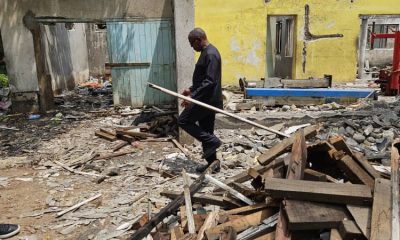





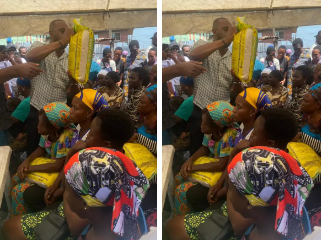

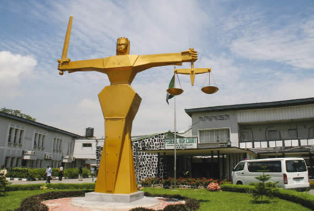




 Health1 week ago
Health1 week ago
 Health1 week ago
Health1 week ago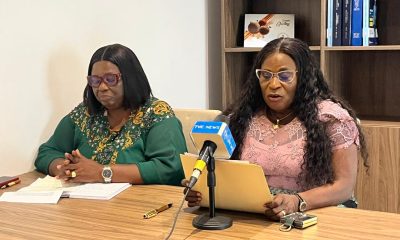
 Latest6 days ago
Latest6 days ago
 News7 days ago
News7 days ago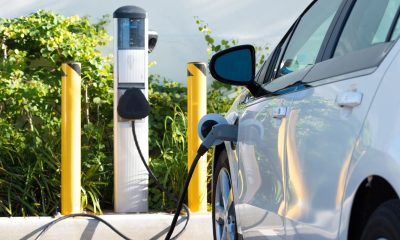
 Business6 days ago
Business6 days ago
 Business1 week ago
Business1 week ago
 Football1 week ago
Football1 week ago
 Business1 week ago
Business1 week ago
